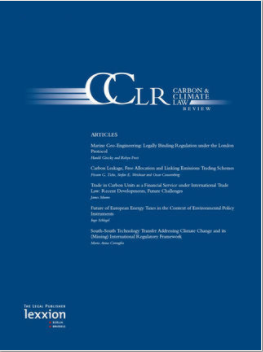ICAO’s Market Based Mechanism: Keep It Simple
ICAO’s market based mechanism to cap net emissions of carbon dioxide from international civil aviation at 2020 levels is a welcome first step towards achieving the industry’s more ambitious targets for reducing its carbon footprint. The mechanism should be seen as a means for the aviation industry, in which it is relatively costly to achieve significant cuts in emissions with current technology, to widen the scope of mitigation actions available to it. The mechanism should be designed to be simple, and therefore procedurally straightforward to implement, oversee, and scale up. This study concludes that airlines’ offset obligations should be made proportional to their total emissions. Exemptions from the mechanism will distort the market. Even if ICAO accomplishes the difficult task of targeting exemptions only towards the poorest countries, such exemptions will disproportionately benefit the wealthiest individuals in those countries. To fully address aviation’s climate impacts, international regulation should be matched by domestic action, particularly in countries such as the United States whose circumstances and capabilities are uniquely suited to catalyzing the technological change needed to achieve deeper decarbonization of the sector.


Leave a Reply